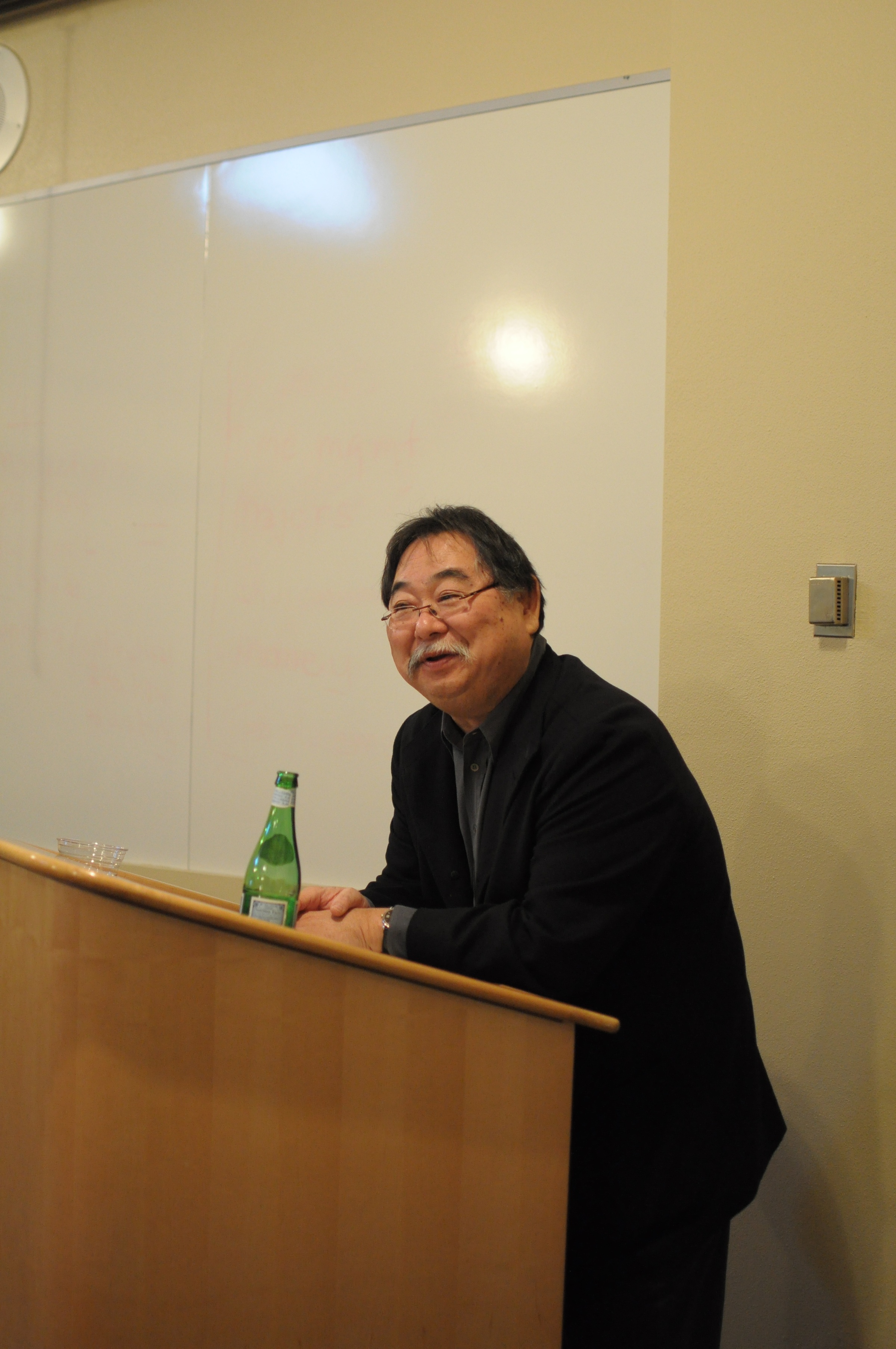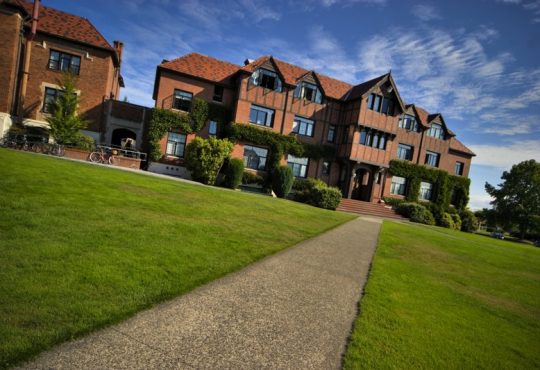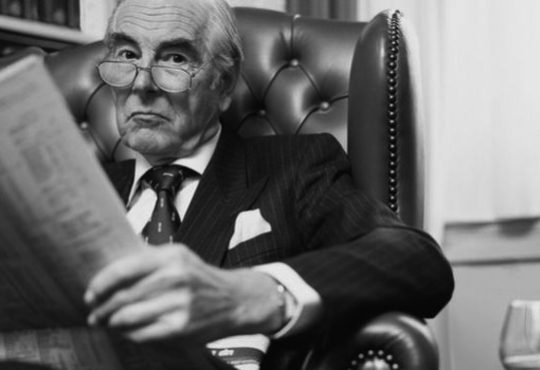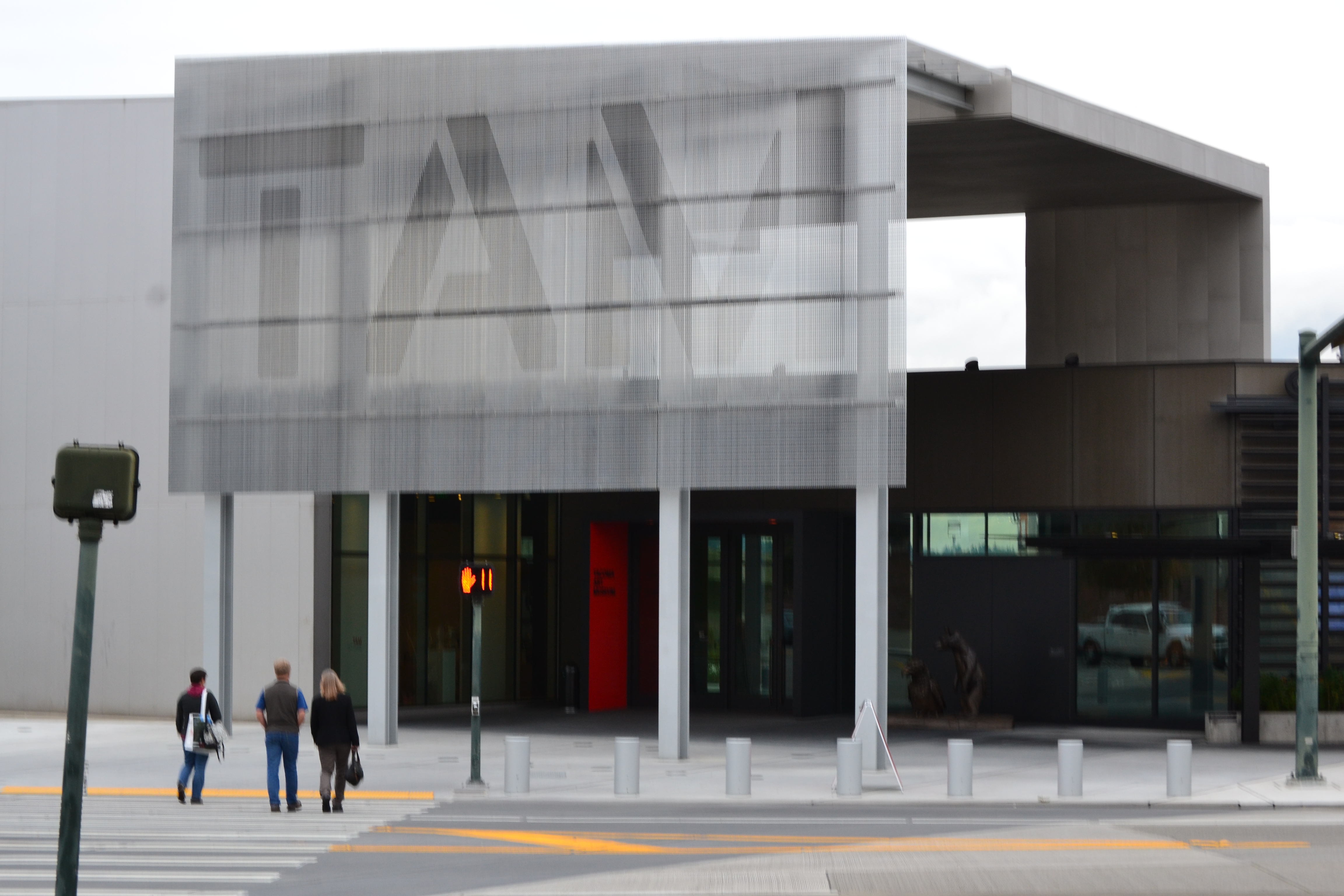
On Nov. 8 Garrett Hongo filled the Murray Boardroom with well crafted words from his collection of poetry, Coral Road. It was a small and intimate poetry reading that lent itself to a comfortable atmosphere to share in Hongo’s memories.
Stephen Sumida opened the reading with an introduction of Hongo and a brief background on Hongo and Sumida’s connection. Sumida began with his first encounter of Hongo at the University of Washington.
Sumida described Hongo as “this round moon face with a moustache on it.” Sumida also mentioned that the moment Hongo introduced himself, he recited poetry.
Eventually, as Sumida and Hongo got more acquainted with one another, Hongo asked Sumida to be a fellow pioneer with him in the studies and teachings of Asian-American history.
“We were all so laid back it was as if we were laid under,” said Sumida describing the nature of Hongo and Sumida’s efforts in Asian-American history.
At the poetry reading, it seemed that the laid back nature of Sumida and Hongo had not yet departed. After Sumida’s introduction, Hongo took over the reading.
“[Coral Road] is a book about new beginnings,” Hongo said, introducing his recently released work. “I left theater for TV, TV for poetry, poetry for nonfiction and I’ve recently returned to poetry.”
Each poem Hongo read had a dedication to someone in his life. The first poem read was a poem dedicated to his maternal family about the landscape of Northern Italy seen on his honeymoon.
“I write about history,” Hongo said, allowing a window into the intentions of his writing. The history Hongo wrote about in Coral Road is a rich one, and deeply rooted in his family’s oral tradition and his own experiences while growing up.
Because of his background in theater, Hongo brought a great deal of expression to his readings. He took on different voices and countenances with each new intention or character revealed.
A couple of the poems Hongo read were written in the voice of his grandfather, who was a detainee after Pearl Harbor. Hongo explained the poems as letters to other detainee poets, including Pablo Neruda.
“It is undone business that makes us most calm,” Hongo said as he read to his captivated audience. Hongo’s grandfather’s letters allowed a more emotional and personal sentiment to be shared during the reading.
Hongo closed with several poems that related more personally to him. One poem, entitled “Bugle Boys,” was about his father who, while going deaf, was building a radio, with which Hongo, as a child, had helped him.
The final poem Hongo read was an oral history. It was about Hawaiian music and of the music player referred to as Blind Boy Lilikoi. Blind Boy was a musician who played Hawaiian blues for tourists and passing pedestrians.
“Smiling do no good for me,” was one of the most poignant lines from the final poem read by Hongo, well immersed into the character of the hardened musician.
Hongo ended the reading after his final poem with a humble thanks and farewell. The reading opened up the audience to the heart of the matter for each of his poems and proved that Coral Road is a book full of memories and new beginnings.



